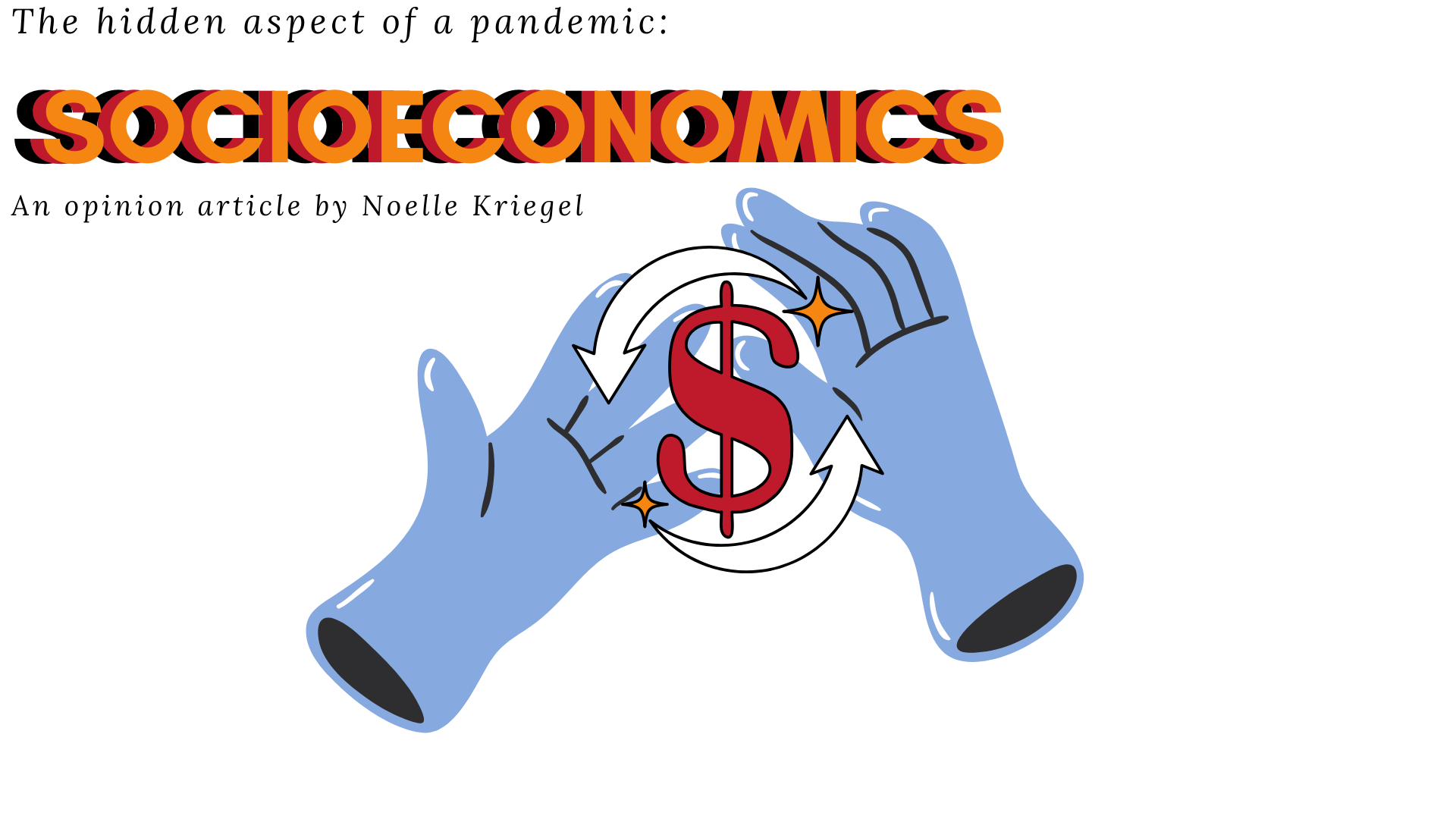Column: COVID-19's deadly domino effect
I’m not a medical expert, and by no means am I an economic expert, but I am a worrier.
I come from a family wrapped closely in the medical field, so the descriptions of ill-equipped hospitals, questionable ethical practices and the staggering figures of the virus are not foreign to me.
Beyond the internal practices of the hospital, I worry about my community. I know that many have jobs they rely on for income, and I know that some are worried about where they will stay, what they can eat and how they will get their medications.
The isolation is a killer too.
With a limited income and a relocation from the school, there is a lot up in the air. The limbo status a lot of students are in right now — and families outside of USC Aiken — is adding to the risk of exposure and spread of the disease.
While the coronavirus is increasing in a number of fatalities and damages, havoc is wreaking outside of the human body: the external systems that we rely on for income and safety.
A sense of community has risen from the pandemic, we see that in the way school buses continue along their routes with hot meals for students relying on school provided lunches. We see it in the comment sections of people offering up food and other items for those unable to find resources due to store shortages.
On the flip side and perhaps in the grander scheme of things: we see that older age and pre-existing health conditions increase the risk of exposure and subsequent illness. The New York Times, as well as other news sources, suggest that a third group are also at a greater risk: low socioeconomic status.
While I praise the school bus routes for continuing to provide for students, my heart sinks for the students located in the more rural parts that do not have the luxury of hot meals provided by the school.
This is a time where community involvement is imperative. This is also a time where community seems impossible.
Understanding that more than the elderly and immuno-compromised will suffer is a fact that must be considered, addressed and acted upon.
A study on Epidemiological Sociology reported these as major findings:
When society develops the capability to prevent or treat disease, health disparities across socioeconomic levels and along racial lines are enhanced.
Using the social shaping approach to examine already collected data related to heart disease demonstrates the possibility of finding untapped applications for past research.
Knowledge of the relationship between lung cancer and smoking and changes in smoking behavior took longer to permeate lower socioeconomic levels. Mortality rates leveled off faster at higher socioeconomic levels.
These findings intrinsically involve politics, economics and race. Beyond that, examining the neurodivergent population during this pandemic will also cross these categories.
The key takeaway from these findings is that the illnesses including coronavirus are not just a health concerns, but also a concern of class.
Relating to the college student struggle, the majority of us may not be as concerned with the health crisis COVID-19 presents, but we should be.
This crisis extends beyond our bodies and reaches into our pockets, frayed from the stress of unemployment.
I’m worried. I am exhausted reading headlines of the death toll rising and I’m tired of reading the number of affected rising because I know that those lacking healthcare or transportation are not included in these figures.
I don’t know how else to phrase this: do more than care for others. Act on their behalf.






